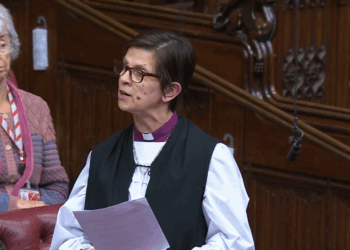Former FBI Director James Comey asked a federal judge to dismiss the Justice Department’s case against him on Monday, claiming he was the victim of a “vindictive” prosecution.
Comey was charged last month with making false statements to Congress and obstructing a congressional proceeding over his handling of an FBI investigation into Russia. In his motion to dismiss, he said that he has committed no crimes and is being targeted because of his criticism of President Donald Trump.
“The government has singled out Mr. Comey for prosecution because of his protected speech and because of President Trump’s personal animus toward Mr. Comey. Such a vindictive and selective prosecution violates the First Amendment, Due Process Clause, and equal protection principles. The proper remedy for this unconstitutional prosecution is dismissal with prejudice,” his legal team wrote.
The indictment accuses Comey of lying to Congress about authorizing a person identified as “Person 3” to leak information to the media. Person 3 was identified in Comey’s motion to dismiss as his longtime friend and Columbia Law School Professor Daniel Richman. He pleaded not guilty on October 8.
Comey’s motion to dismiss alleges that the indictment “presents an inaccurate description of the testimony at the heart of this case.” His motion also cited Trump’s Truth Social posts about Comey before and after the indictment, including one on September 25 in which Trump celebrated the charges.
“JUSTICE IN AMERICA! One of the worst human beings this Country has ever been exposed to is James Comey, the former Corrupt Head of the FBI. Today he was indicted by a Grand Jury on two felony counts for various illegal and unlawful acts. He has been so bad for our Country, for so long, and is now at the beginning of being held responsible for his crimes against our Nation,” Trump wrote.
Join us now during our exclusive Deal of the Decade. Get everything for $7 a month. Not as fans. As fighters. Go to DailyWire.com/Subscribe to join now.
On Sunday, the Justice Department took aim at Comey’s defense, arguing that Patrick Fitzgerald, his lead lawyer, may be caught up in a conflict of interest. This is based on reports that Fitzgerald was involved in Comey’s media strategy in the days before Trump fired him.
“Based on publicly disclosed information, the defendant used current lead defense counsel to improperly disclose classified information,” the DOJ said. “This fact raises a question of conflict and disqualification for current lead defense counsel.”
Fitzgerald has denied that he or Comey ever leaked classified information to the media.
The complicated case is overseen by the U.S. District Court for the Eastern District of Virginia. A trial date has been set for January 5.

















